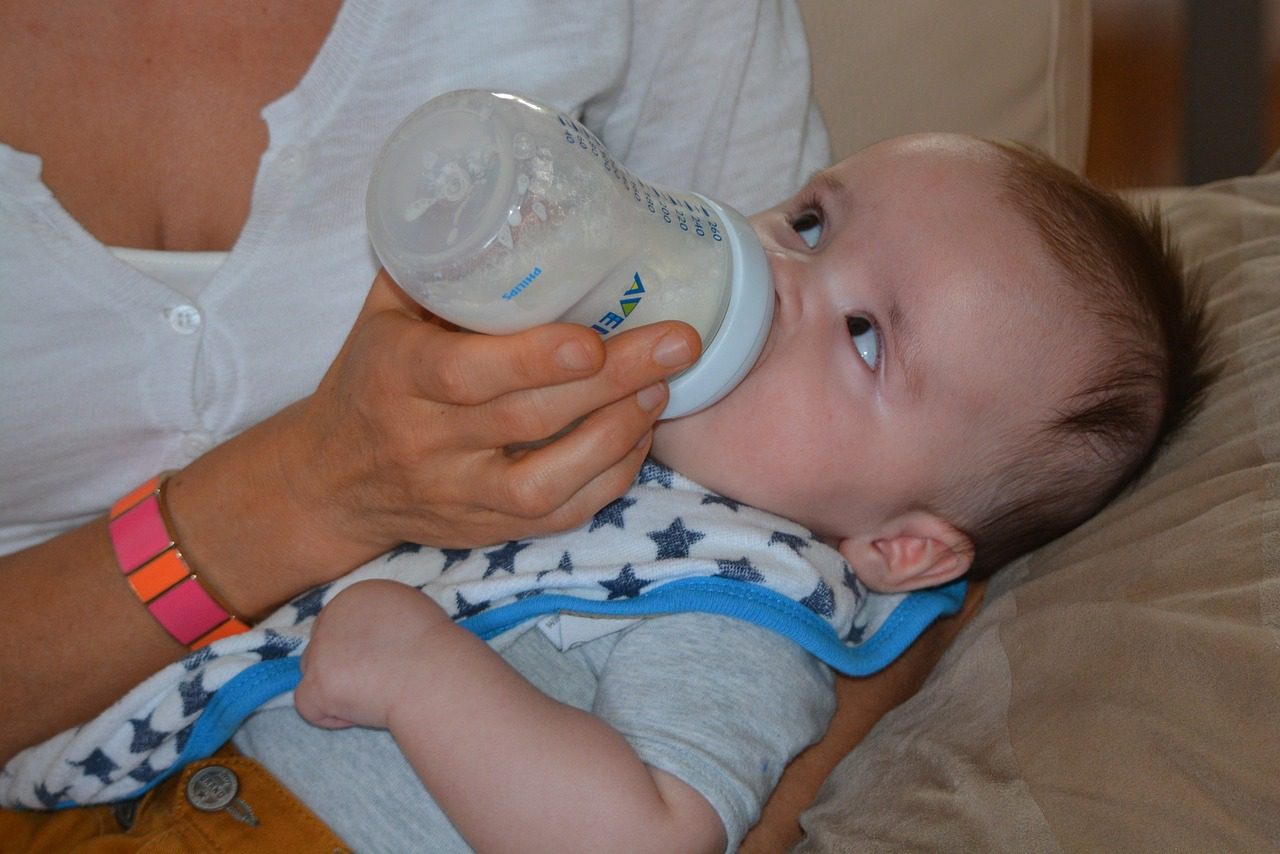Adequate nutrition in infancy and early childhood is the foundation for developing every child’s potential – it is the age from birth to 2 years that is critical for optimal growth and development later in life.
The immediate consequences of inadequate nutrition in this period of life are frequent morbidity, mental retardation, and motor development. Long-term consequences of early nutritional deficiencies include poor health, decreased intelligence, and decreased productivity. This is why caregivers must have an understanding of the principles of infant and toddler feeding.
As defined by the World Health Organization, optimal infant feeding is exclusive breastfeeding for the first six months of life, followed by introducing age-appropriate complementary foods and continued breastfeeding until the age of 2 years and beyond. But not all children, unfortunately, can take advantage of breastfeeding for one reason or another.
Table of Contents
Homemade Formula – Not A Great Choice
It is not advisable to use undiluted cow’s milk in the infant’s diet during the first six months of life because it contains more mineral salts than breast milk. For this reason, cow’s milk quite seriously overloads the immature kidneys and gastrointestinal tract of the baby, provoking the development of pathological conditions.
You should also know that the main protein of cow’s milk – casein, refers to strong allergens. As a result of not completely dissolving it, the product is able to enter the blood and react there with the antigen, provoking a powerful reaction on the part of the immune system. Such a condition sometimes leads to the emergence of intolerance to dairy products and can also cause the development of type I diabetes.
So, feeding an infant with cow’s milk is not an option at all. It is acceptable only when the family of a newborn has a very difficult financial situation, and the choice is between “hunger” or “cow’s milk.”
Alternative Baby Formulas
Fortunately, today, a very large selection of decent formulas can help you provide a proper diet for your baby. Even if your baby has certain health problems, you can choose alternative baby formulas.
Lactose-Free Formula
All dairy products for children contain so-called milk sugar. To digest it, the body secretes a special enzyme called lactase. Sometimes, the baby does not produce this enzyme at all, or not enough of it is produced by the body. In this case, the doctor may prescribe a lactose-free formula for use: it does not need lactose to digest it since the food does not contain milk sugar.
Only the pediatrician should decide if a child should take the lactase-free formula. Under no circumstances should healthy children be fed this type of baby food. Lactase is very important for the formation of the intestine and microflora in children. If this process is deliberately disrupted, parents may encounter serious illness in their child in the future.
Anti-Colic
The baby’s symptoms of digestive discomfort (bloating, restless behavior) is often accompanied by loud crying. If this is the case, parents should choose a special Anti-Colic formula from HiPP. It is suitable for use as the only food source for babies from birth until they are six months old.
The formula will provide your baby with all the nutrients needed for optimal growth and development. Lactobacillus L.reuteri is an active probiotic culture that supports your baby’s digestion, significantly reduces crying time in colic, and promotes the development of healthy intestinal microflora.
Adapted Goat Baby Formula
For some children, Adapted Goat Milk Formula may be a good option. It is designed so that it is similar to mother’s milk in nutritional value and protein structure. Goat’s milk, unlike cow’s milk, has several advantages, thanks to which dry goat’s milk formula is less likely to cause allergic reactions and abdominal pain. And this defines one but undeniable advantage: it is easier to digest and digest.
So, goat’s milk formula can be well received by healthy children and children with functional gastrointestinal tract disorders or the risk of developing allergies.
Love Your Kid

It is also important to note that a baby who is not getting breast milk for whatever reason should not, in addition to this, suffer from a lack of communication with his family. Try to use every feeding, whether from a bottle or a plate, as an opportunity to develop, learn, and get to know each other.
If the soulless bottle has become between you and your baby, create a situation similar to breastfeeding more often – take your baby in your arms, support the bottle with him, talk to him, and do not leave him feeding alone – it is dangerous. It forms a feeling of loneliness in the child.
So, as we can see, today, there is a great choice of milk formulas, the composition of which is close to breast milk. And if you happened to choose the milk formula, there is nothing bad or catastrophic about it.
As your child grows, you can learn how to make baby food for them.
More information can be found on the page: Best Organic Baby Formula 2021
The main thing is that all family members are in a harmonious relationship, understand one another, and help in difficult life situations. Only when there is emotional stability in the family will the child grow and develop normally, feeling the love of their parents.
Featured Image by Ben Kerckx from Pixabay




